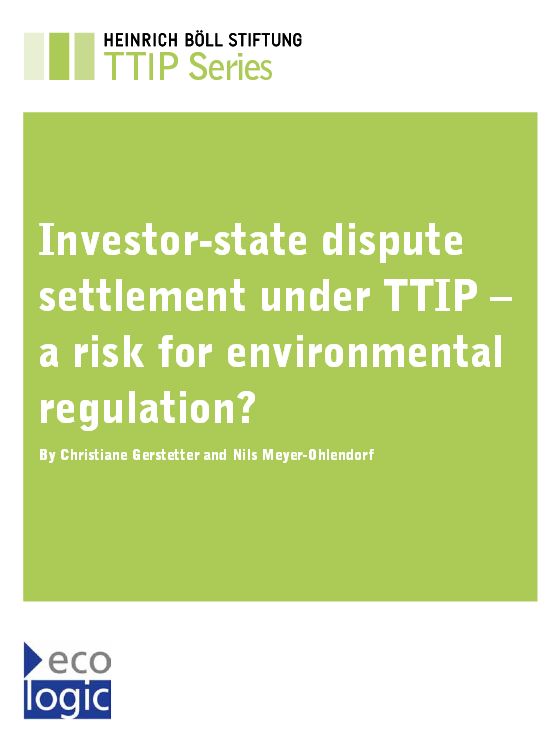In this article, published in the journal Frankfurter Hefte, Christiane Gerstetter from Ecologic Instiute takes a stand on environmental aspects in the discussion on the Transatlantic Trade and Investment Partnership (TTIP) that is currently negotiated between the EU and the USA.
The environmental impacts of international trade agreements are often ambiguous and differ depending on the countries and agreements concerned. The article refers to possible direct and indirect impacts, including for example the increase in CO2-emissions due to more transport. At the same time, Gerstetter criticizes that quantitative research cannot depict with sufficient accuracy what influence trade agreements can have on current and future environmental regulation.
Concerning TTIP, from the author’s point of view the risk of a weakening of existing environmental regulations is not high; however, she warns of a decreasing or chilling effect on future environmental regulation. Especially the planned rules on investor-state dispute settlement (ISDS) are seen critical, because states expose themselves to the risk of lawsuits from investors; these could have negative influence on political discussions on planned environmental measures.
Furthermore, the implementation of some of the currently negotiated proposals could alter the discursive field of debates about future policies in favour of trade issues; trade interests could gain even more weight in political discussions compared to other interests.
Christiane Gerstetter draws the conclusion that TTIP at the current state of negotiations, although not known in detail, poses some risks from the environmental point of view that are not matched by a recognizable added value. She therefore advocates that instead of negotiating TTIP, the financial and personal resources should be invested in thinking about solutions to the urgent ecological problems of our time.
